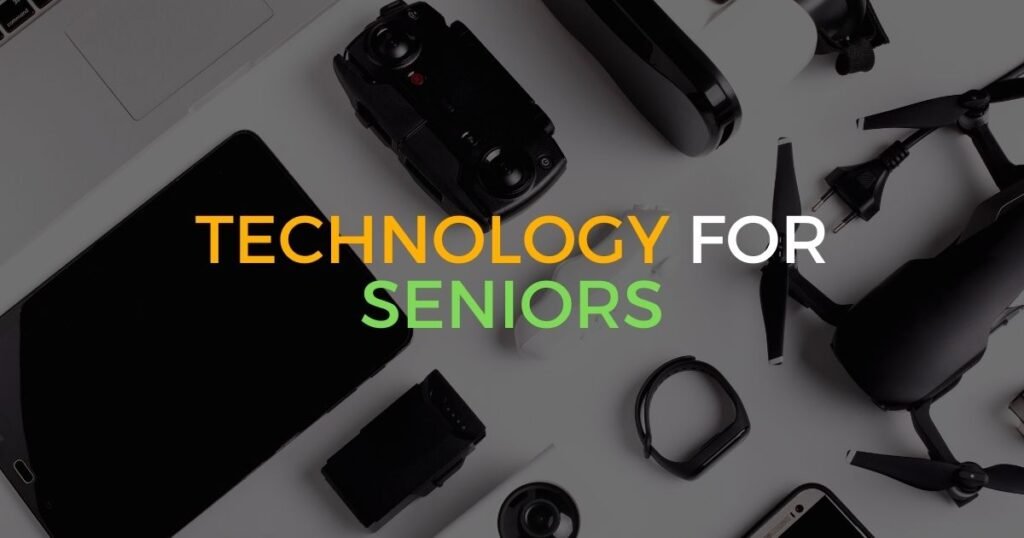While some mature adults hesitate to adopt new devices, the vast majority see technologies like smartphones, tablets, smart speakers, and software apps as tools to enrich their lifestyles. Technology for seniors motivated to learn, today’s user-friendly gadgets and platforms make getting started in the digital world easier than ever.
With the right guidance and patience, elders can leverage technology for convenience, safety, health, social engagement, and fun. As cutting-edge innovations hit the mainstream, this blog explores practical technology to enhance seniors’ lives and empower their independence.
Smartphones
Smartphones represent one of the most versatile tech tools for active seniors on-the-go. Key features include:
- Calling and texting family and friends through messaging apps
- Emailing and scheduling
- Directions, maps, and location services
- Mobile apps and Internet access
- Photos, videos, and memories
- Mobile payment/banking/finance apps
- Ridesharing and transportation apps
- Audiobooks, music, podcasts, movies
- Fitness tracking and wellness apps
Choosing user-friendly smartphones with features tailored for accessibility and simpler interfaces helps older users fully utilize capabilities while avoiding complexity. Resources like Verizon’s Smartphone for Seniors guide informed choices.
Tablets
Tablets like iPads provide a lightweight, portable alternative to laptops with intuitive touchscreens ideal for seniors. Popular uses include:
- Video chatting via FaceTime or Skype
- Reading books, newspapers, and magazines
- Playing games, puzzles, and brain-training apps
- Storing and viewing photos
- Watching videos, lectures, and classes
- Surfing the Internet and social media
- Controlling smart home devices
Tablets work well for less tech-savvy older adults. The simplified apps and touch interface help overcome the learning curves of traditional computers.
Smart Home Technology
Smart home tech adds convenience and accessibility using WiFi-enabled, app-controlled devices. Useful options include:
Smart Speakers – Voice-activated assistants like Amazon Echo and Google Home for news/weather updates, playing music, setting reminders/alarms, controlling smart devices, and contacting family hands-free.
Smart Lighting – Connected light bulbs, switches, and plugs to automate lighting control and schedules. Helpful for fall risk reduction.
Smart Thermostats – Adjust home temperatures remotely via smartphone to conserve energy.
Smart Locks – Unlock doors using smartphones or key codes for family access. Avoid hiding keys.
Smart Appliances – Remotely control and monitor washers, dryers, refrigerators, ovens. Conserve energy.
Home Security – Cameras, sensors, and alarm systems to monitor activity and safety.
Robot Vacuums – Automatic floor cleaning on set schedules.
Simplified smart gadgets and apps give seniors added convenience. Installation help may be needed.
Wearable Technology
Innovative wearable devices are going mainstream with practical use cases for older consumers. Examples include:
Smartwatches – Receive notifications, track health metrics, and access apps on the go. Use for contactless payments. Enable location tracking and emergency SOS signaling.
Fitness Trackers – Monitor daily movement, exercise, sleep patterns, heart rate and more. Keep physically and mentally active.
Hearables – Bluetooth earbuds and hearing aids to amplify sounds and media. Reduce listening difficulty and isolation.
Medical Alert Devices – Pendants, bracelets, and watches with fall detection and emergency calling/locating capabilities. Give peace of mind when living independently.
Wearables integrate seamlessly into everyday routines to enhance convenience, activity, safety, and health.
Supporting Seniors With Technology
While today’s tech options are increasingly intuitive, many older adults still require some extra guidance and support from family members or professional tech helpers. Useful assistance includes:
- Encouraging a receptive, open-minded learning mindset
- Finding apps/gadgets tailored for senior-friendly use
- Demonstrating functionality and letting them manipulate devices
- Providing clear reference guides and reminders
- Adding contacts, configuring settings, and organizing apps
- Troubleshooting issues calmly and positively
- Being on-call for ongoing tech questions
- Exploring training classes and tutorials
With the right support framework, even tech-hesitant seniors can gain digital literacy and independence.
Conclusion
In 2024, consumer technology presents abundant opportunities for seniors to enrich their connections, interests, health, and daily living. Taking time to understand modern options and prioritize user-friendly choices allows older adults to maximize benefits. Tech mediators play a key role in assisting adoption. By embracing technology as empowering rather than overwhelming, today’s elders can unleash exciting new capabilities.
FAQs about Technology for Seniors
What everyday technologies do experts recommend for seniors?
Great options are senior-friendly smartphones, tablets, smart speakers, smart home gadgets, wearables like smartwatches/fitness trackers, and intuitive apps/websites.
What key features do new technologies offer older adults?
Key benefits are better connectivity, accessibility, convenience through automation, health/activity tracking, home safety monitoring, communication, social engagement, learning, and entertainment.
What barriers do some seniors face in adopting new technology?
Barriers include the perceived complexity of devices, lack of instructions/support, preference for old habits, fear of looking inept, and concerns about scams/privacy. Patience and training help overcome these.
How can families and caregivers assist seniors with technology?
Useful assistance includes encouraging an open mindset, finding senior-friendly gadgets/apps, demonstrating functionality hands-on, providing reference guides, troubleshooting issues, and being on-call for questions.
Why is it important for seniors to embrace technology?
Digital literacy helps seniors stay safe, connected, mentally sharp, and independent while also allowing them to capitalize on emerging innovations to improve their quality of life.



